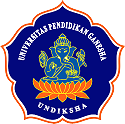Pengembangan Skala Kedisiplinan Belajar Pada Siswa Sekolah Menengah Kejuruan
DOI:
https://doi.org/10.23887/jurnal_bk.v6i1.579Keywords:
Kedisiplinan Belajar, Reaserch and Development, Bimbingan KonselingAbstract
Penelitian ini bertujuan untuk mengembangkan skala kedisiplinan belajar pada siswa. Dalam rangka memenuhi hal tersebut dilakukan penelitan dengan menggunakan metode Reaserch and Development model Borg & Gall, dengan 10 langkah tahap pengembangan yaitu : 1) pengumpulan data, 2) perencanaan, 3) mengembangkan draft produk, 4) uji coba pertama dilapangan, 5) penyempurnaan produk awal, 6) uji coba dilapangan, 7) penyempurnaan hasil uji lapangan, 8) melaksanakan uji lapangan, 9) penyempurnaan product akhir, dan 10) implementasi. Pada pengujian validitas peneliti menggunakan Formula Lawshe dengan lima ahli beserta praktisi BK untuk menguji kepatutan instrument yang dikembangkan berisi 45 pertanyaan. Untuk menguji Tingkat validitas secara terbatas peneliti menggunakan korelasi Product Moment (Pearson Correlation) dengan bantuan program SPSS yang melibatkan 80 responden, untuk menguji validitas lebih luas peneliti melibatkan 170 responden. Untuk menguji reliabilitas peneliti menggunakan Alpha Cronbach melibatkan 60 responden, adapun pengambilan datanya ditarik secara random melalui google form. Pada penyebaran diperoleh nilai validitas 0,98 dan reliabilitas 0,889 sehingga masuk dalam kategori sangat tinggi dan instrument dinyatakan layak untuk mengukur kedisiplinan belajar siswa.
Abstract:
This study aims to develop a learning discipline scale in students. In order to fulfill this, research is carried out using the Research and Development method of the Borg & Gall model, with 10 stages of development, namely: 1) data collection, 2) planning, 3) developing product drafts, 4) first field trials, 5) refinement initial product, 6) field trials, 7) refinement of field test results, 8) conduct field tests, 9) refine final products, and 10) implementation. In testing the validity of the researcher using Lawshe's Formula with five experts and BK practitioners to test the appropriateness of the developed instrument containing 45 questions. To test the limited validity level, the researcher used Product Moment Correlation (Pearson Correlation) with the help of the SPSS program which involved 80 respondents, to test the wider validity the researcher involved 170 respondents. To test the reliability of the researchers using Alpha Cronbach involving 60 respondents, while the data was taken randomly through the google form. In the distribution, the validity value is 0.98 and the reliability is 0.889, so it is included in the very high category and the instrument is declared feasible to measure student learning discipline.
References
Diyah Lusiana, W. L. (2013). Instrumen Penilaian Afektif Pendidikan Karakter Bangsa Mata Pelajaran Pkn Smk. Journal of Research and Educational Research Evaluation, 2(1).
Dubeau, A., Plante, I., & Frenay, M. (2017). Achievement profiles of students in high school vocational training programs. Vocations and learning, 10(1), 101-120.
Lawahe, C. H. (1975). a Quantitative Approach To Content Validity. Personnel Psychology, 28(4), 563–575. https://doi.org/10.1111/j.1744-6570.1975.tb01393.x
Shofiah, V. (2019). Metode Biblioterapi Islam Untuk Pengembangan Karakter Tanggung Jawab Pada Mahasiswa. Educational Guidance and Counseling Development Journal, 2(1), 1. https://doi.org/10.24014/egcdj.v2i1.7250
Sugiarto, A. P., Suyati, T., & Yulianti, P. D. (2019). Faktor Kedisiplinan Belajar Pada Siswa Kelas X Smk Larenda Brebes. Mimbar Ilmu, 24(2), 232. https://doi.org/10.23887/mi.v24i2.21279
Sugiyanto, K. (2013). Pengaruh Persepsi Siswa Tentang Mata Pelajaran Teknologi Informasi Dan Komunikasi Terhadap Prestasi Belajar Mata Pelajaran Teknologi Informasi Dan Komunikasi Siswa Kelas Xi Di Sma N 1 Semin. Https://Eprints.Uny.Ac.Id/29739/1/Kinship%20Sugiyanto%2008520244025.Pdf, c, 2–6.
Sugiyono. (2008). Metode Penelitian Kuantitatif Kualitatif dan R&D. Alfabeta.
Suharsimi Arikunto. (2006). Prosedur Penelitian Survei Pendekatan Praktek. Rinieka Cipta.
Suranata, K., Apriliana, I. P. A., & Ifdil, I. (2020). The Effect of Problem-Solving Training to Improve Student’s Critical Thinking and Decision-Making Skills: Racked Analysis. Acta Counseling and Humanities, 1(1), 1-9.
Undang-undang Pasal 1 ayat 1 No 20. (2003). Tentang Sistem Pendidikan Nasional (UUSPN).





